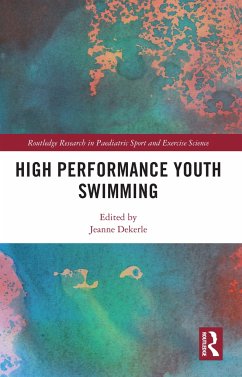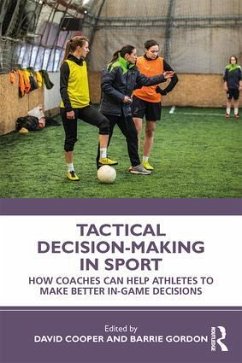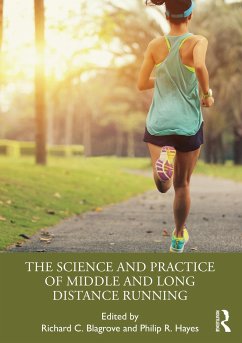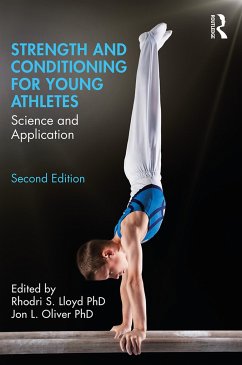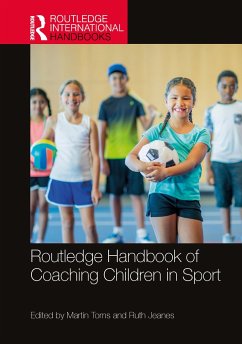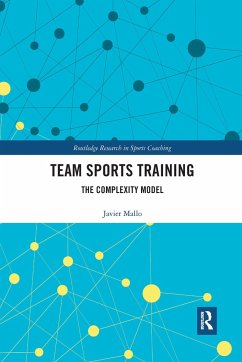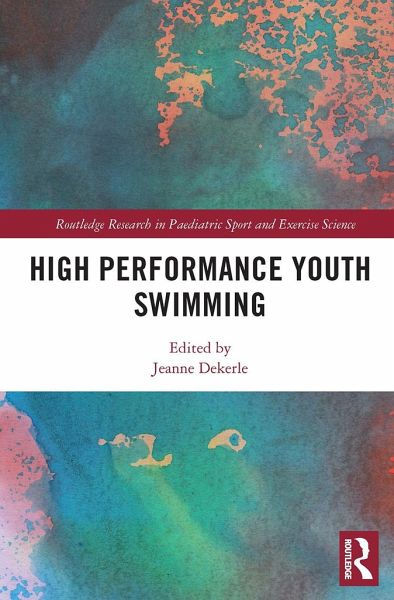
High Performance Youth Swimming
Versandkostenfrei!
Versandfertig in 6-10 Tagen
47,99 €
inkl. MwSt.
Weitere Ausgaben:

PAYBACK Punkte
24 °P sammeln!
High Performance Youth Swimming provides an in-depth view of the physiological, biomechanical, and multifaceted underpinning of swimming success, with a focus on youth. Considerations of both growth and maturation processes and the intricacies of the swimming training environment are core throughout the book.Divided into sections on physiology of swimming, motor control, biomechanics, and long-term well-being, the book also includes chapters from international contributors on:Strength and conditioningSkill acquisitionOvertrainingBurnoutRespiratory healthThis volume is for those interested in e...
High Performance Youth Swimming provides an in-depth view of the physiological, biomechanical, and multifaceted underpinning of swimming success, with a focus on youth. Considerations of both growth and maturation processes and the intricacies of the swimming training environment are core throughout the book.
Divided into sections on physiology of swimming, motor control, biomechanics, and long-term well-being, the book also includes chapters from international contributors on:
Strength and conditioningSkill acquisitionOvertrainingBurnoutRespiratory health
This volume is for those interested in enhancing their art of coaching through a deeper understanding of the science of swimming, including swimming coaches, those who wish - and question how - to best support youth swimming performance, or anyone interested in swimming science more generally.
Divided into sections on physiology of swimming, motor control, biomechanics, and long-term well-being, the book also includes chapters from international contributors on:
Strength and conditioningSkill acquisitionOvertrainingBurnoutRespiratory health
This volume is for those interested in enhancing their art of coaching through a deeper understanding of the science of swimming, including swimming coaches, those who wish - and question how - to best support youth swimming performance, or anyone interested in swimming science more generally.





